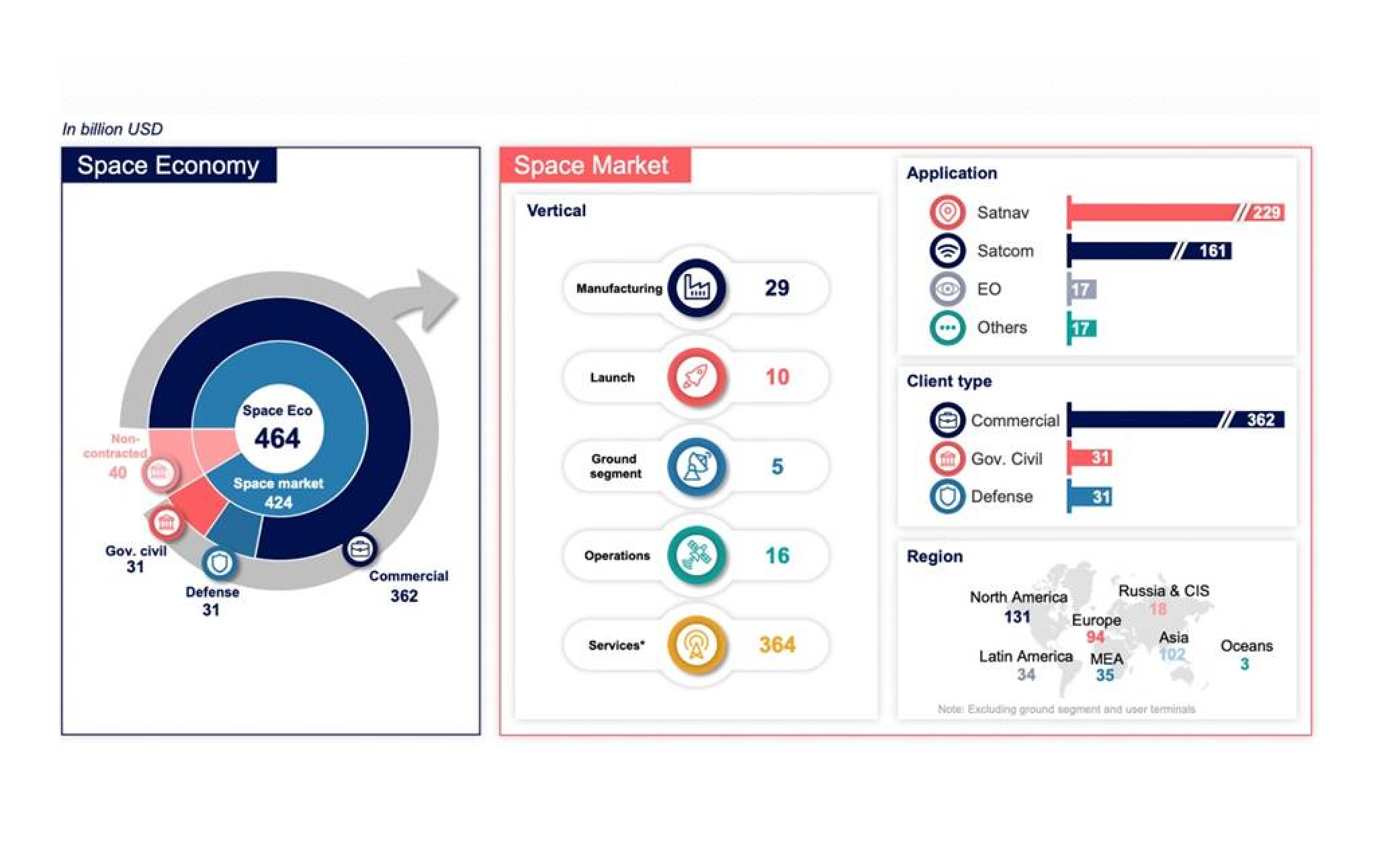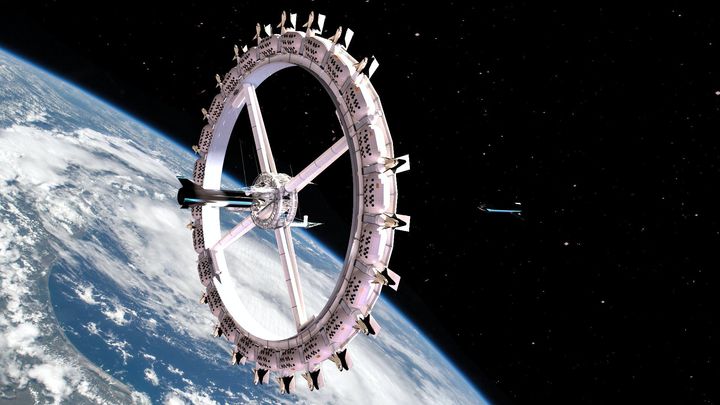What is Spacepower and Why You Should Care!
What is spacepower and why is it important? Is it different from military spacepower? This article has answers and explains why you should care about spacepower.

What is spacepower? Why is it important? It's a term that lends itself to confusion - often the term spacepower can seem militaristic. In this article we will review definitions of national power, instruments of national power, and discuss how these concepts map to the space domain.
National Spacepower is the sum of all resources and capabilities a nation possesses to influence and control events, outcomes, and other actors in the Space Domain in pursuit of prosperity and security. The balance of Spacepower over the 21st century will be amongst the biggest factors affecting human wellbeing.
To unpack this we need to 1) introduce national power, 2) define spacepower and its differences from military spacepower, and 3) understand why you should care about spacepower.
Avast!
1) What is National Power?
Let's begin with some definitions:
"Power, by definition, enables influence and control over events, outcomes, and other actors." (pg. 12, Spacepower - Doctrine for Space Forces)
National Power is the sum of all resources and capabilities a nation possesses to influence or control events, outcomes, and actors.
Nations generally use their national power in pursuit of prosperity and security.

Let's talk about how nations use national power.
Instruments of National Power
Several frameworks are used to understand how national power is formed and used. These frameworks help decision-makers holistically conceptualize and apply national resources using 'whole-of-government' strategies.
Here I'll briefly discuss two frameworks common in United States Department of Defense (DoD) circles:
DIME (Diplomatic, Information, Military, Economic) instruments of national power are articulated in Joint Doctrine (pg. I-12, 13, U.S. DoD Joint Publication 1 (JP-1))
Rather than rephrasing the definitions, I'll leverage the DoD Joint Publication 1 definitions for diplomatic, information, military, and economic instruments of power:
Diplomacy:
"Diplomacy is the principal instrument for engaging with other states and foreign groups to advance US values, interests, and objectives [...]." (pg. I-12, U.S. DoD Joint Publication 1 (JP-1))
Information:
"Information remains an important instrument of national power and a strategic resource critical to national security." (pg. I-12, U.S. DoD Joint Publication 1 (JP-1))
Military:
"Fundamentally, the military instrument is coercive in nature, to include the integral aspect of military capability that opposes external coercion." (pg. I-13, U.S. DoD Joint Publication 1 (JP-1))
Economic:
"A strong US economy with free access to global markets and resources is a fundamental engine of the general welfare [...]." (pg. I-13, I-14, U.S. DoD Joint Publication 1 (JP-1))
Another framework for instruments of national power is MIDFIELD:
MIDFIELD (Military, Informational, Diplomatic, Financial, Intelligence, Economic, Law, Development) is an extension of DIME (pg. I-8, Joint Doctrine Note 1-18: Strategy).
The 'Law' component is not intuitive at first blush, however recent application of lawfare in political conflict has vindicated its inclusion as an instrument of national power.

There are other national power frameworks that include social and cultural power. For our purposes the exact framework isn't pertinent; let's presume a DIME or MIDFIELD framework for this discussion.
For each national prosperity or national security question, decision-makers use the DIME or MIDFIELD frameworks to ask how each instrument of national power can support one another to achieve a particular outcome.
Hard and Soft Power
Some group economic and military power into a category termed hard power. The use of these power types often centers around coercion to achieve a desired outcome. Deterrence is one form of coercion; compellence is another. Payments and explicit financial benefit are an example of coercion in economic power.
Conversely, soft power, which includes diplomatic, cultural, and social power, is a measure of good-will and alignment of interests. Soft power is achieved when other actors desire the same outcomes and events you want. With soft power there is no coercion - there is a consensus built around shared desires.
2) Spacepower Definition vs. Military Spacepower
If national power is the sum of capabilities a nation uses to ensure prosperity and security, then:
National Spacepower is the sum of all resources and capabilities a nation possesses to influence and control events, outcomes, and other actors in the Space Domain in pursuit of prosperity and security.
The USSF Spacepower Doctrine focuses largely on the military instrument of national power in space. In other words, military spacepower. They write:
"Any nation or non-state actor who depends on space as a source of diplomatic, informational, military, or economic power is vulnerable to military spacepower's coercive potential." (pg. 32, Spacepower - Doctrine for Space Forces)
and
"Military spacepower may still have a coercive impact on nations or actors who lack significant space dependencies by projecting power from the space domain." (pg. 32, Spacepower - Doctrine for Space Forces)
I need to pause a moment to emphasize a critical point: spacepower is not the same as military spacepower. Often, the term 'spacepower' is used as shorthand for 'military spacepower,' however the two are not the same. Military spacepower is one (albeit important) of many instruments of national spacepower.
We mustn't forget about diplomatic, informational, and economic spacepower, right?
3) Why Should You Care?
Spacepower Enables Modern Life
The World Economic Forum enumerates how modern agriculture (feeding billions), weather prediction, navigation, imaging, and communications provide foundational elements of what we consider to be modern life.
Space companies such as SpaceX, OneWeb, Amazon, and Maxar are democratizing access to information through space-based ubiquitous internet and commercially available satellite images.
Current estimates place the annual value of the space industry at ~$464B (no doubt dating this article for future readers). The space economy is expected to grow to $1-1.4T by 2030.

If the space economy were a country, it would almost qualify to be a member of the G-20. That's before the substantial predicted growth over the next decade. Let that sink in for a moment.
Spacepower is important to our modern life; continued national prosperity - for many nations - depends upon it.
Space is the 'Ultimate High Ground'
The phrase 'space is the ultimate high ground' is often repeated by USSF personnel (2003). The famous astronomer Carl Sagan reminds us that this term predates the new millennium:
"Even [during the space race], there was fanciful talk in military circles, East and West, about space as the new “high ground,” about the nation that “controlled” space “controlling” the Earth." (pg. 167, Pale Blue Dot)
While true, pithy phrase 'ultimate high ground' undersells the true economic, diplomatic, informational, and military value of space.
Joshua Carlson claims:
"It is short sighted to describe space as “high ground,” just like it would be odd to refer to the ocean as “high ground.” It focuses too much on Earth and ignores the strategic terrain of space." (Location 190, Space Power Ascendant)
Regardless of the scope of the 'ultimate high ground' value,
"[...] Military spacepower [is] a critical manifestation of the high ground in modern warfare." (pg. 16, Spacepower - Doctrine for Space Forces)

The space domain represents key terrain - areas from which tactical, operational, and strategic advantage may be realized. military spacepower helps to bolster and ensure national security.
It also ensures access to unfathomed economic resources, and opportunity.
Spacepower Enables Access to ... Everything
The focus on Cislunar activities also manifests as a question of spacepower - in this case Cislunar Spacepower.

Water ice discovered in the polar craters is most often cited as an instigating cause of renewed cislunar interest, though other reasons exist.
This is with good cause. Many, including the NASA Jet Propulsion Laboratory, have called it a Lunar Gold Rush.
Water ice can be transformed (with solar or nuclear power) to volatiles used for life support or cracked into hydrogen and oxygen - one of our favorite combinations for chemical rocket engines. A nation possessing a facility capable of generating and providing propulsion expendables in space would be transformative. It would be like having the only oil well, refinery, and gas station around.
With your own source of propellant (that you don't have to launch from the Earth), resource extraction from Near Earth Asteroids becomes much more viable. The rest of the solar system suddenly appears much closer.
Easy access to resources within the solar system is a matter of national prosperity and security. It is a matter of spacepower.
Spacepower Will Transform Earth
It's easy to dismiss dreams of moving all heavy or polluting industries to space as fancy.
However, companies are working towards that goal now. Blue Origin's self-stated mission is:
"Blue Origin envisions a time when people can tap into the limitless resources of space and enable the movement of damaging industries into space to preserve Earth, humanity’s blue origin. (Blue Origin)"
Regardless of the current state of space-based resource extraction, in the long term the functionally infinite resources within our solar system will be accessed by humans. When this occurs it would be surprised if the raw materials are sent to the Earth, processed, then launched back to space for use in further resource extraction.
As economic activity expands to space polluting or toxic resource processing will increasingly be performed in-situ - in space. This is a direct manifestation of (economic) spacepower being used to improve national prosperity.
Summary
We've reviewed definitions of power, national power, and national spacepower. These discussions lead us to the following points:
- National Spacepower is the sum of all resources and capabilities a nation possesses to influence and control events, outcomes, and other actors in the Space Domain in pursuit of prosperity and security.
- Spacepower is not equivalent to military spacepower; rather, military spacepower is one of several forms of national spacepower.
- Our current and future prosperity and security depend upon national spacepower; we should all care that spacepower is applied wisely to shepherd the great promise and prosperity that space offers.
Subscribe to the Newsletter
If you enjoy this content, show your support by subscribing to the free weekly newsletter, which includes the weekly articles as well as additional comments from me. There are great reasons to do so, and subscriptions give me motivation to continue writing these articles! Subscribe today!


